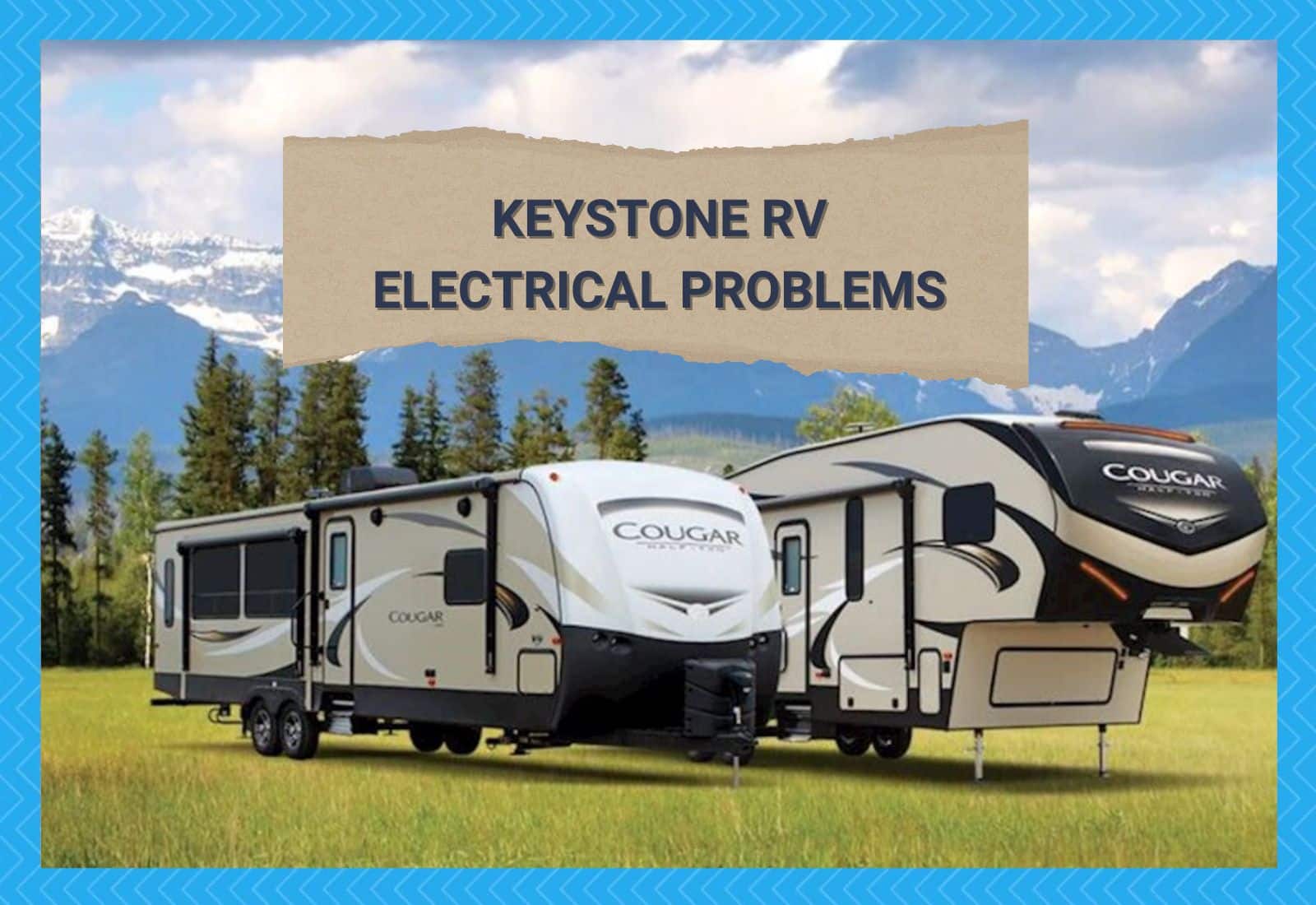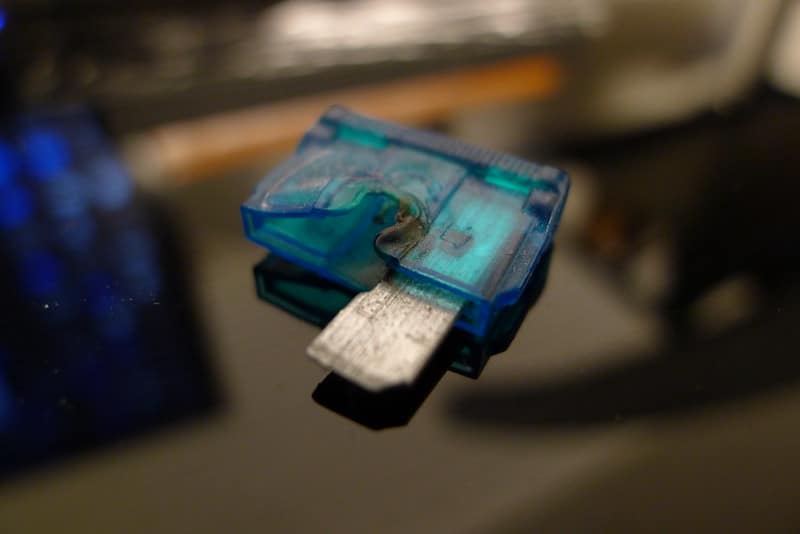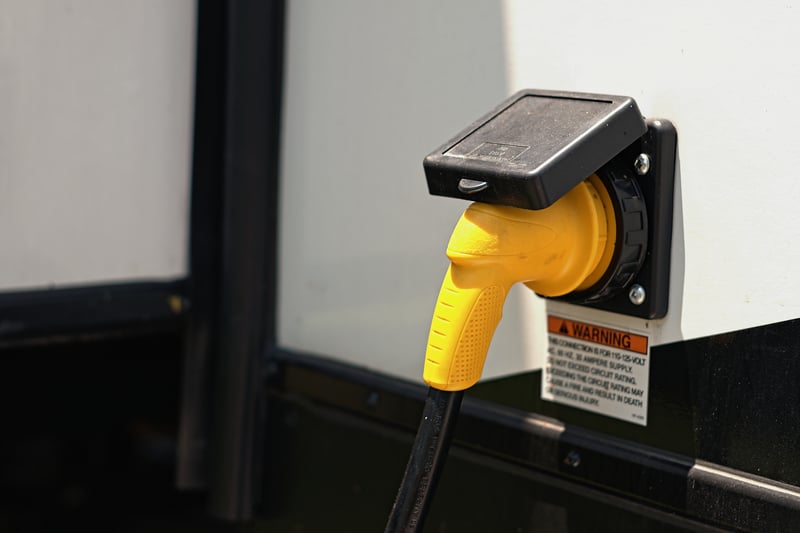
Choosing a reliable brand for purchasing RV is important because it’s a hefty investment. Keystone RV is one of the best brands that offer motorhomes, fifth wheels travel trails, and hybrid trailers.
All these vehicles are designed with advanced features but there are some electrical problems that you need to be careful about. For this reason, we are listing down the common electrical problems in Keystone RVs as well as their solutions.
Common Keystone RV Electrical Problems
1. Power Outage
The power breakers and fuses are an important part of an RV and they are usually the culprits behind most electrical issues. The blown-out fuses and power breakers can create a power outage.
If this happens, you need to turn off all the electrical devices. That’s because you have to disconnect the electrical appliances that are connected to the power breaker to reset it to the default settings.
Secondly, you have to access the fuse box and inspect all the fuses. The broken, blackened, or damaged fuses should be replaced with fuses that match the amperage rating of the previous fuse that Keystone had installed.
That’s because the correct amperage is important to avoid the burning of the electrical system. Once you’ve reset the power breaker and the fuse is replaced, make sure you don’t connect too many electrical devices because it can increase the operating load, leading to fuse issues.
2. No Cranking
If the RV is turning on but there is no cranking, it’s likely to be an issue with the battery terminals and you’ve to look for corroded terminals and/or loose connections. So, check the battery and look for loose terminals at negative as well as positive leads.
If there are loose ground wires, you have to tighten the connection. In addition to the battery, it’s recommended that you tighten the cables from the engine block as well.
However, if tightening the wires doesn’t work, you’ve to check the terminals for corrosion. That’s because corroded terminals can negatively impact connectivity.
If there is corrosion, you can use a contact cleaner or a deoxidizer. Once the wires are tightened and terminals are cleaned, try turning on the RV again.
3. Ground Fault Indicator Trips Off
The ground fault indicators are usually referred to as GFI and it is designed with a reset button. If the current flowing through the indicator exceeds the maximum current limit, the indicator turns off automatically.
The ground fault indicator trips if there is a small amount of energy between the ground lead and the hot line of the circuit breaker.
This issue really happens when you use uninsulated items in the kitchen or bathroom because the appliance comes in contact with the ground through metal, increasing the current flow.
For this reason, we recommend that you get new and specialty circuit breakers for the kitchen and bathroom to prevent tripping of the ground fault indicator.
4. Fuses Keep Blowing
If the fuses are constantly blowing, you have to check the batteries because the batteries might have low charging or are weak. So, the first step is to recharge the batteries manually (you can also try jumpstarting the batteries).
On the other hand, if you haven’t replaced the batteries in a long time, we recommend that you invest in new batteries.
Secondly, you have to check the electrical system for a short circuit. Unfortunately, it will be challenging to identify the short circuit, which is why you should hire an electrician.
Last but not least, you have to check the wires between the fuse box and electrical devices. That’s because if there is melted insulation, it will cause the fuses to blow and the only solution is to replace the wires with melted insulation to ensure a safe connection.
5. Electrical Appliances Aren’t Turning On
If the electrical appliances aren’t turning on, you have to check the 12V system of your RV. In particular, you have to look for loose breaker connections and tripped breakers.
First of all, we recommend that you access the circuit box and turn on the tripped breaker to ensure a consistent flow of electric current.
Also, it’s recommended that you reduce the number of electric appliances connected to the power source to ensure the circuit breaker doesn’t trip because of excessive load.
The second solution is to check the breaker connections. In particular, if you haven’t connected a lot of electric appliances but the breaker still trips, there are chances the breaker connections are loose.
For this reason, you have to check the wires connected to the breaker and tighten them up.
Last but not least, you have to check the batteries. That’s because the batteries are important for 12V systems and low charging or insufficient water level in the battery can create issues for the electric appliances.
For this purpose, we recommend that you replenish the water levels in the battery and recharge it fully to make sure the 12V system is powered up.
6. Short Circuit
If there is a short circuit in the electrical system, it’s usually caused by the external power source. For instance, if the cables are worn-out or damaged, they cause a short circuit when they come in contact with the electric appliances.
For this reason, we recommend that you move your vehicle to a new location and change the power source to make sure it’s not fluctuating (the damaged or worn-out cables can cause fluctuations in the current flow).
On the other hand, if you cannot move to a new location, we recommend that you contact the campsite management as they are responsible for providing the correct electrical connection.
In addition, we recommend that you install an RV surge protector because it has a prompter response to voltage fluctuations, preventing damage to the electric appliances.
7. Low Voltage
If you are unable to use electric appliances because of low voltage, it’s recommended that you check the batteries. This is because a low battery can lead to low voltage.
If you are using solar panels, we recommend that you check their installation and make sure that the solar panels are set up properly. It is recommended that you wire the solar panels directly to the batteries to ensure they are fully recharged.
On the other hand, if you are using a generator to power the electric appliances, you should avoid using the inverters.
Secondly, you have to remove the extension cords, plug-in transformers, and power cord splitters. That’s because these devices can lead to significant voltage drops.
In addition, it’s recommended that you don’t use devices that claim to boost the AC output because it can damage the compressor.
If the voltage is still low, we recommend that you check the converter. That’s because the converter might not be charging the battery properly.
To resolve this issue, you must check the converter’s circuit breaker and make sure it’s not tripped. If that’s the case, we recommend that you turn on the converter’s circuit manually to recharge the battery.
8. Switches Are Not Working
There are power switches in the RV, which help power the electric appliances. So, if you connect the electric appliances to the power switch but they don’t turn on, it’s likely that the switches aren’t getting the right voltage.
It’s recommended that you hire an electrician to make sure the backend cable connections to the switches are correct.
9. Burning Smell Coming From Appliances
There are various external power supply issues but excessive current is one of the most common issues. Excessive current can lead to failure of the electric appliances and can melt the plugs and wires.
The most common symptom of excessive current is the burning smell coming from the switches and appliances. If that’s the case, we recommend that you contact the campsite management and make sure they are providing a safe power connection.



